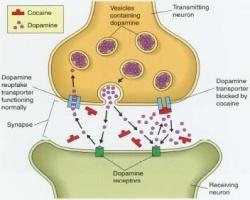Neuroscience studies are pointing to a gene that makes it physiologically more difficult for some people to learn from their mistakes.
German researchers, in an issue of the journal Science, say their current research shows a common gene variant affects some people’s ability to respond to, and learn from, the negative repercussions of their actions.
The researchers lead a small study that scanned the brains of 26 men as they each performed a simple task. The task was connected to a favorable or unfavorable consequence, and some of the men were much less able to refrain from making a choice that produced an unfavorable consequence. The same men who were unable to change this action had a particular gene variant.
A gene variant is called an allele. The particular allele that the “troubled men” had in common reduces the density of receptors for dopamine in certain areas of the brain. Dopamine is a neurotransmitter that plays a key role in motivation, pleasure, and addiction.
In other words the men who had a more difficult time correcting their actions had a brain composition that made it more difficult for them to do so. It’s like their sensitivity to bad decisions was turned down.
The good news is that all the men, whether or not they had the allele, were equally as good at learning to perform a task that yielded a positive result – the difference was found solely in their ability to learn from their wrong decisions.
Though previous studies have established a strong link between a low density of dopamine receptors and addiction, obesity, and compulsive gambling, this is the first strong physiological evidence that this brain variation affects someone’s ability to learn from a mistake. However, it’s important to note this variation does not make it impossible for someone to make a good decision more regularly because the rest of the brain compensates – it only seems to make it more difficult for someone to stop making the same bad one.
(Time 12/6)
What might this evidence suggest about they way we encourage students to learn from their mistakes? Does knowing about this study affect the way you might help a student deal with guilt or self-image?




